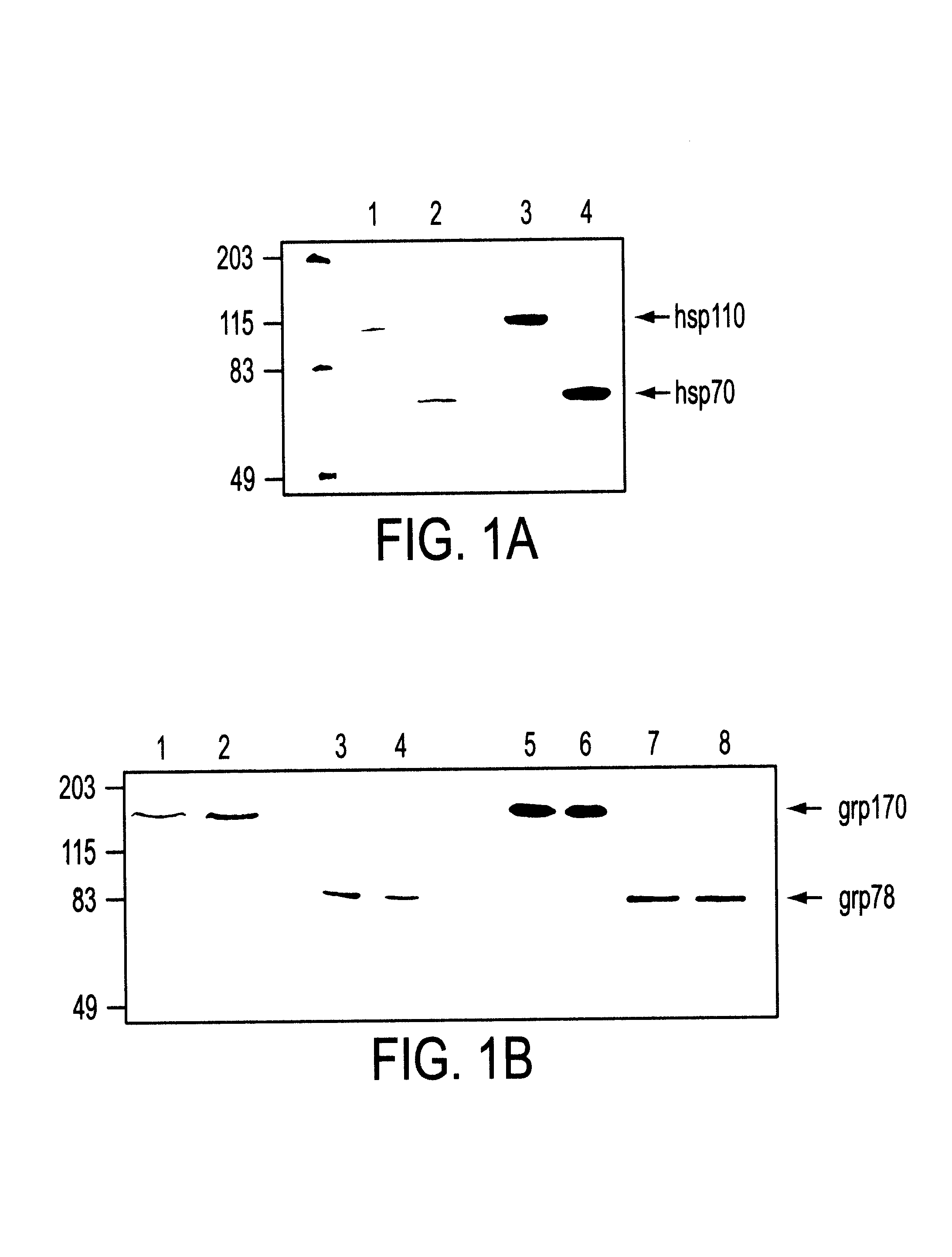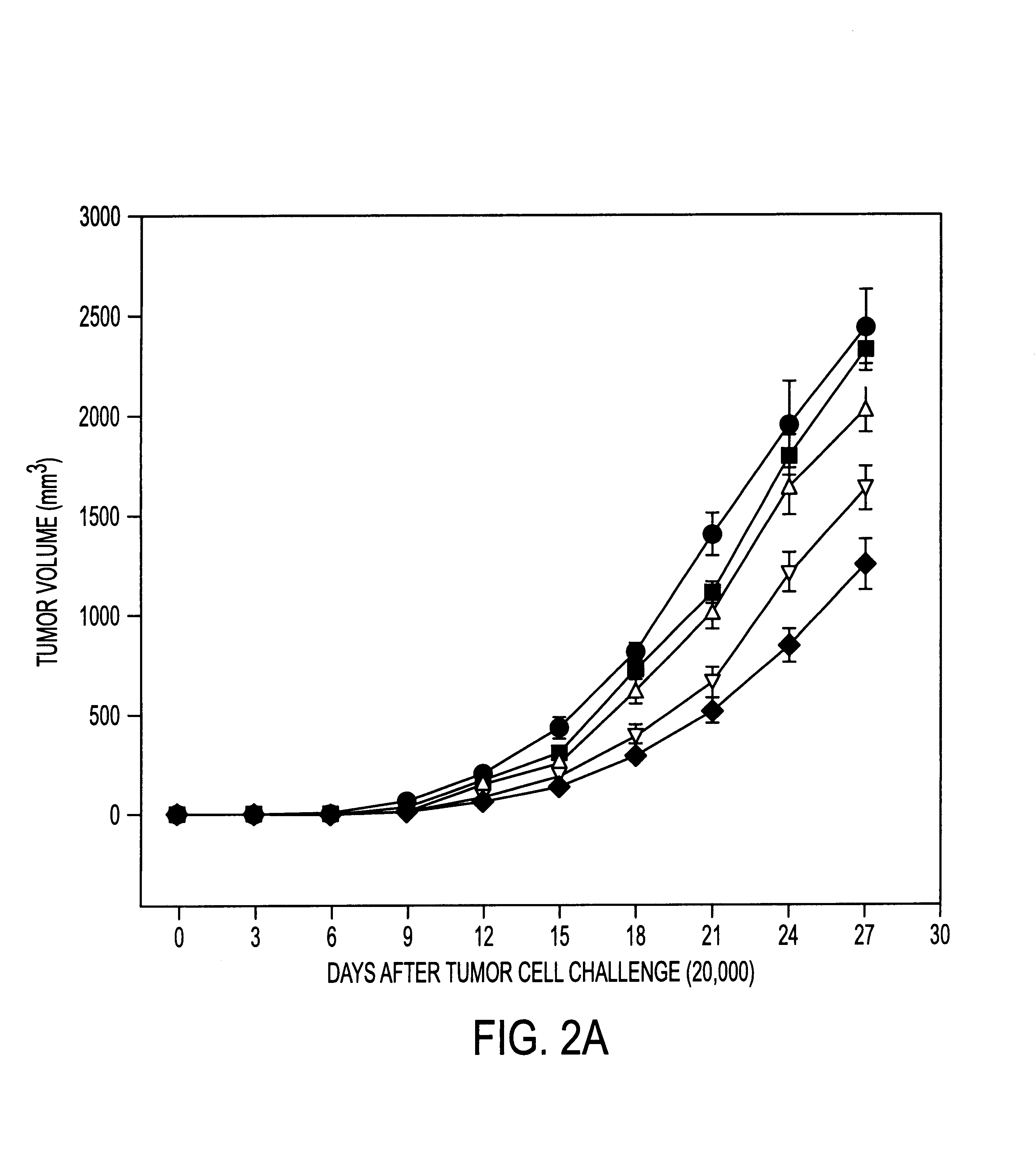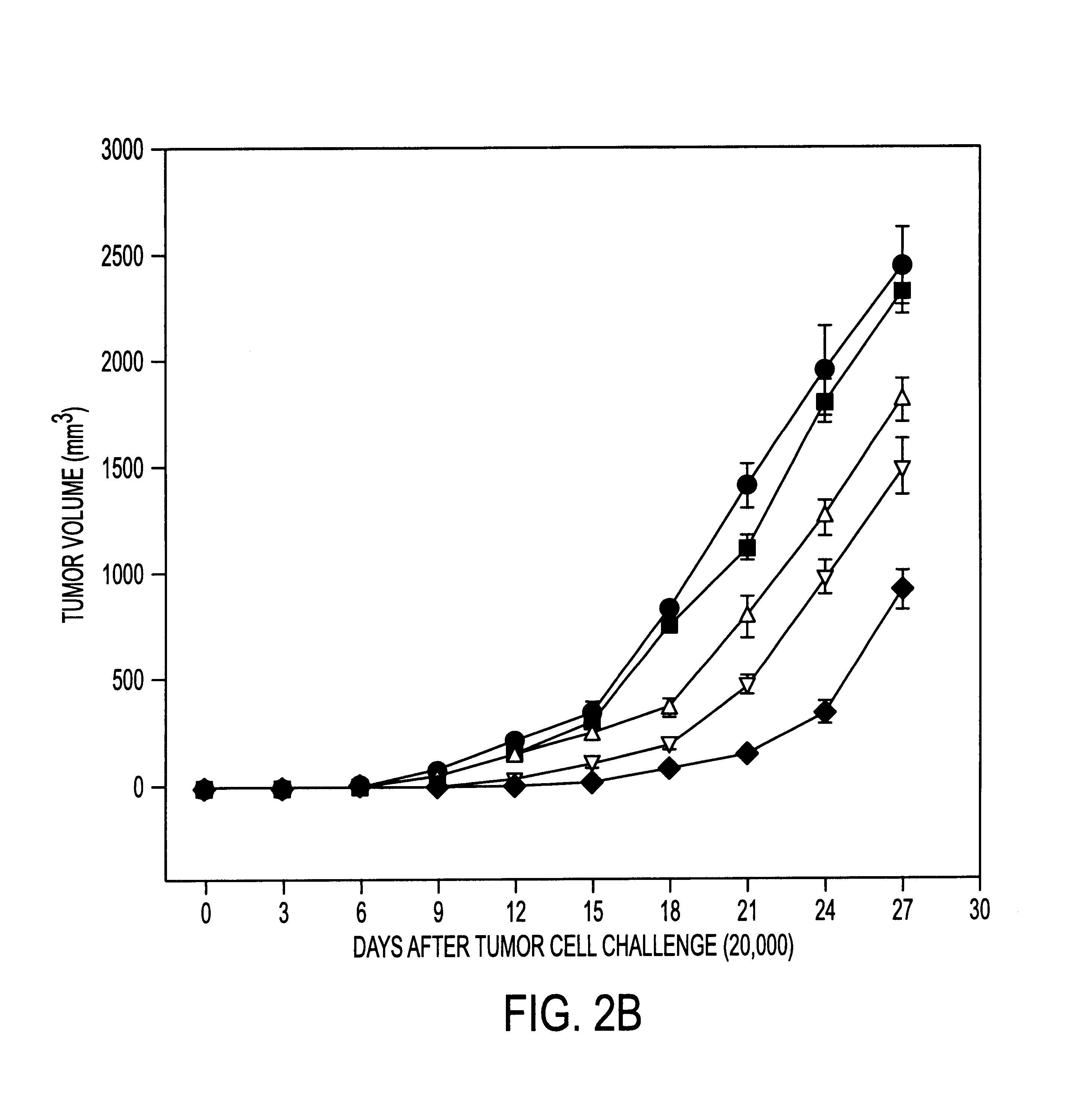Stress protein compositions and methods for prevention and treatment of cancer and infectious disease
a stress protein and composition technology, applied in the field of stress protein compositions and methods for preventing and treating cancer and infectious diseases, can solve the problems of insufficient treatment options, lack of vaccines or other universally successful methods for preventing or treating cancer, and insufficient treatment options, so as to improve the efficacy and enhance the effect of stress protein complexes
- Summary
- Abstract
- Description
- Claims
- Application Information
AI Technical Summary
Benefits of technology
Problems solved by technology
Method used
Image
Examples
example 1
Purification of hsp110, grp170 and grp78
[0167]This example describes the procedure for purification of hsp110 and grp170, as well as for grp78. The results confirm the identity and purity of the preparations.
Materials and Methods
[0168]A cell pellet or tissue was homogenized in 5 vol. of hypotonic buffer (30 mM sodium bicarbonate, pH7.2, 1 mM PMSF) by Dounce homogenization. The lysate was centrifuged at 4500 g and then 100,000 g to remove unbroken cells, nuclei, and other tissue debris. The supernatant was further centrifuged at 100,000 g for 2 hours. Supernatant was applied to concanavalin A-sepharose beads (1 ml bed volume / ml of original material), previously equilibrated with 20 mM Tris-HCl 50 mM NaCl, 1 mM MgC12, 1 mM CaCl2, 1 mM MnCl2. The bound proteins were eluted with binding buffer A containing 15% a-D-methylmannoside (a-D-MM).
[0169]For purification of Hsp 110, ConA-sepharose unbound material was applied to a Mono Q (Pharmacia) 10 / 10 column equilibrated with 20 mM Tris-HCl, ...
example 2
Tumor Rejection Assays
[0173]This example demonstrates that immunization with tumor derived hsp110 and grp170 protects mice against tumor challenge. The results show tumor growth delay with prophylactic immunization as well as longer survival times with therapeutic immunization.
Materials and Methods
[0174]BALB / cJ mice (viral antigen free) were obtained from The Jackson Laboratory (Bar Harbor, Me.) and were maintained in the mouse facilities at Roswell Park Cancer Institute. Methylcholanthrene-induced fibrosarcoma (Meth A) was obtained from Dr. Pramod K. Srivastava (University of Connecticut School of Medicine, Farmington, Conn.) and maintained in ascites form in BALB / cJ mice by weekly passage of 2 million cells.
[0175]Mice (6-8-week-old females; five mice per group) were immunized with PBS or with varying quantities of tumor or liver derived hsp 110 or grp170, in 200 μl PBS, and boosted 7 days later. Seven days after the last immunization, mice were injected subcutaneously on the right...
example 3
CTL Assay
[0183]Because cellular immunity appears to be critical in mediating antitumor effects, a cytotoxic T lymphocyte (CTL) assay was performed to analyze the ability of tumor derived hsp110 or grp170 preparations to elicit a CD8+ T cell response. The results show that vaccination with tumor derived hsp110 or grp170 elicits an effective tumor specific CTL response.
Materials and Methods
[0184]Mice were immunized twice as described above. Ten days after the second immunization, spleens were removed and spleen cells (1×107) were co-cultured in a mixed lymphocyte-tumor culture (MLTC) with irradiated tumor cells (5×105) used for immunization for 7 days, supplemented with 10% FCS, 1% penicillin / streptomycin, 1 mM sodium pyruvate and 50 μM 2-mercaptoethanol. Splenocytes were then purified by Ficoll-Paque (Pharmacia) density centrifugation and utilized as effector cells. Cell-mediated lysis was determined in vitro using a standard 51Chromium-release assay. Briefly, effector cells were ser...
PUM
| Property | Measurement | Unit |
|---|---|---|
| concentrations | aaaaa | aaaaa |
| concentrations | aaaaa | aaaaa |
| concentrations | aaaaa | aaaaa |
Abstract
Description
Claims
Application Information
 Login to View More
Login to View More - R&D
- Intellectual Property
- Life Sciences
- Materials
- Tech Scout
- Unparalleled Data Quality
- Higher Quality Content
- 60% Fewer Hallucinations
Browse by: Latest US Patents, China's latest patents, Technical Efficacy Thesaurus, Application Domain, Technology Topic, Popular Technical Reports.
© 2025 PatSnap. All rights reserved.Legal|Privacy policy|Modern Slavery Act Transparency Statement|Sitemap|About US| Contact US: help@patsnap.com



